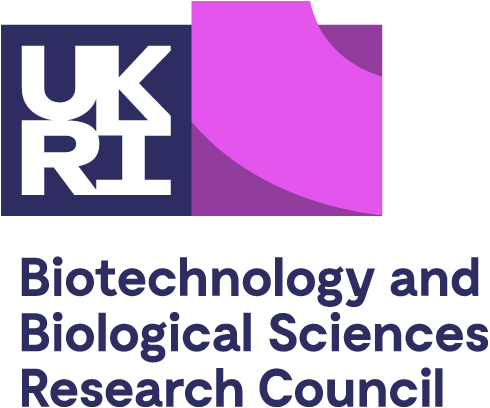Objectives
The aim of the Responsive Mode Spotlight mechanism is to provide simpler, more agile and dynamic targeting of particular areas of timely strategic interest, opportunity or need. This is in line with the broader strategic research and innovation priorities set out in the strategic delivery plan 2022 to 2025 and Forward Look for UK Bioscience.
In addition to the spotlight areas that are active at any given time, we continue to encourage proposals that align with our broader and longer-term priorities (which are largely inclusive of the previously articulated Research Priority areas). We also welcome investigator-led applications across all areas of BBSRC’s research remit.
A small number of Responsive Mode Spotlight areas will be in operation at any one time, in line with the more targeted nature of the new mechanism.
New spotlights will be added into rotation on a round-by-round basis. It will be made clear from the outset how long each spotlight will run for and which responsive mode rounds will apply. This will provide prospective applicants more time to hone their proposals than single-round research highlights have previously allowed.
Consideration will be given to portfolio evidence and advisory intelligence in selecting new spotlight areas, as will the need for overall strategic balance and balancing anticipated demands on each of the four research committees.
Current Responsive Mode Spotlight area is plant health (24RM1, 24RM2,24RM3)
Plant health underpins the sustainable production of food, as well as maintaining the natural environment around us. The Food and Agriculture Organisation has estimated that globally, up to 40% of crops are lost to pests and diseases. Many crop protection chemicals are being withdrawn due to their impact on non-target organisms. Use of fungicides and antibacterial agents can lead to the target pathogen developing resistance to them, which can add to existing problems of antimicrobial resistance in human pathogens. In addition, climate change is leading to different biotic and abiotic stresses on crops, and different crops may need to be grown, bringing new pests and pathogens.
This spotlight on plant health covers infection by fungal, oomycete, bacterial and viral pathogens, as well as damage caused by invertebrate pests. The aim of the spotlight is to encourage research proposals in the following specific areas. We welcome proposals in other plant health areas, but they will not considered to be within the scope of the spotlight.
Development of novel crop protection strategies including IPM
Many of the chemicals used to protect crops are being withdrawn from use or having their application restricted due to their impact on beneficial aspects of the wider ecosystem, and new control methods are needed to replace them. Research into the development of new biocontrol agents and strategies will be essential to reduce our dependence on chemical methods of crop protection. Understanding how to target specific pest species while leaving other species (including beneficial ones) unharmed will help to maintain biodiversity in agricultural systems. Research into scaling integrated pest management (IPM) strategies to larger scales will enable its adoption at field or farm level.
Better understanding of the roles of soils, including their microbial communities and symbionts in resilient crops
Plants exist in a complex environment involving microbiomes associated with the plant itself, as well as the soil microbiome, and interactions with those microbiomes as well as the nutrients in the soil can determine how well a plant is able to resist attack from pests and pathogens. Plant health research often overlooks the role of the surrounding microbiome on the interactions between host and pathogen. Research aimed at understanding these interactions, particularly in the soil, may be the key to developing new ways to increase resilience in crops, or to understand why some plants become infected while others remain resilient.
Better understanding of signatures of plant disease to support the development of novel and improved diagnostics
The development of lateral flow tests for COVID-19 showed the importance of being able to test for the presence of a disease quickly and easily, ideally before symptoms emerge. Better knowledge of the signatures of plant diseases which could be proteins, exudates and volatiles specific to a particular disease or a change in visual appearance of the plant would support the development of diagnostics, to enable the rapid identification of diseases and appropriate treatments to be employed before the disease has chance to spread.
BBSRC recognises the importance of multidisciplinary collaborations, partnerships, and end user engagement in this area.
This spotlight therefore promotes basic research but also encourages translation to practical applications.
You should outline your approach in terms of collaboration and engagement with end users. Where possible, you should also indicate how the research will inform policy and societal implications.
Eligibility
Standard responsive mode eligibility requirements apply.
Read BBSRC’s guidance for applicants.
To find out if your proposal is within scope for a particular spotlight, please email us. Contact details are provided below.
How to apply
Spotlights will typically run for a full year (three responsive mode rounds).
Applications can be made at any time in the same way as standard responsive mode.
This means prospective applicants will now have more time to hone their proposals compared with previous single-round research highlights.
Timings may vary by exception, but when a new spotlight area is advertised it will be clear from the outset how long it will run for, and which responsive mode rounds will apply.
You do not need to identify your proposal as a spotlight proposal on the form, but where relevant, you may wish to indicate in the case for support how your proposal aligns to a specific spotlight area.
Relevant proposals will be identified and monitored during the peer review process by BBSRC portfolio managers.
Read BBSRC’s guidance for applicants.
Assessment
Spotlights are assessed in the same way as other responsive mode applications using the standard responsive mode assessment criteria:
- scientific excellence
- industrial and stakeholder relevance
- relevance to BBSRC strategy
- economic and social impact
- timeliness and promise
- value for money
- staff training potential of the project (where resources are requested for postdoctoral or other research staff)
Read more about what happens after you submit your proposal.
Applications falling within a Responsive Mode Spotlight area are assessed in open competition with other responsive mode proposals by the most appropriate research committee.
The composition of the research committee will be carefully considered during the design of each spotlight and supplemented if necessary.
Responsive Mode Spotlight aligned applications will not receive an uplift and there is no ring-fenced funding.
However, research committees will be asked to consider alignment to Responsive Mode Spotlight areas as part of their overall assessment of relevance to BBSRC strategy.
Proposals aligning to Responsive Mode Spotlight when the spotlight has closed will still be welcomed but may not be actively monitored in the same way during the peer review process.


